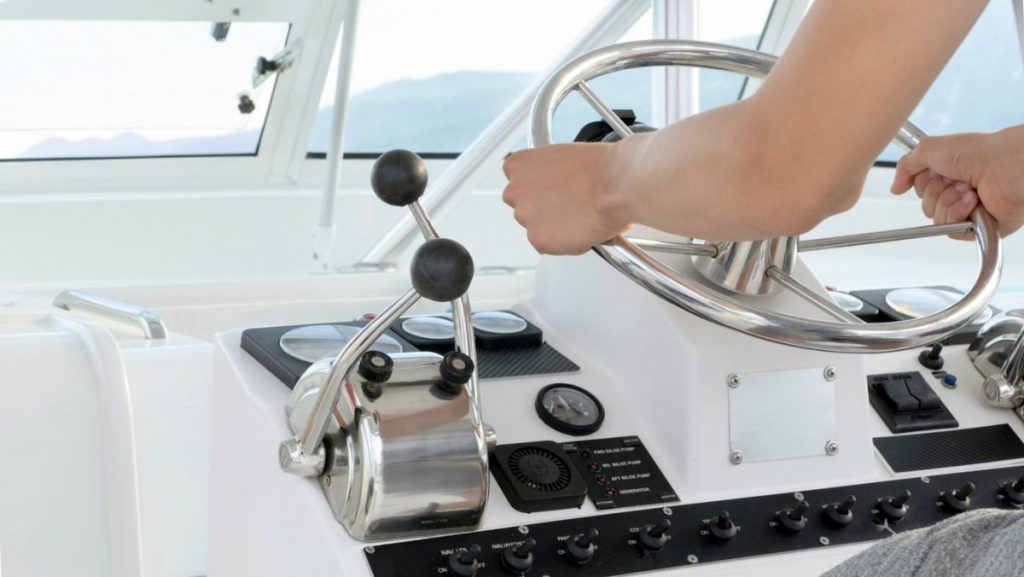Whether you’re new to boating or an experienced veteran, making simple mistakes on the waters can have serious consequences for your boat and for your safety. The good news is that most boating errors are caused by everyday stressors such as being in a hurry or not paying attention, and can easily be fixed by getting enough sleep the night before, planning out your expedition, and simply paying attention when you’re out on the water.
Avoid embarrassing boating errors by taking a basic boating course, staying focused and completing a pre-departure list. The most important lesson is never assuming someone else did a task for you. Would you rather take a little extra time now, or find out that something didn’t get taken care of when you’re already in the middle of the ocean?
According to the rules of the US Coast Guard, a vessel operator is always responsible for his or her actions. Let’s go over some of the most common boating errors and some thoughts on how to avoid looking like a newbie on the waters, via Boating Safety Magazine.
1. Failure to Install the Boat Drain Prior to Launch
Installing the plug is one of the fundamental lessons boaters across shores should know, yet every weekend reports of boaters forgetting to install the plugs are heard. This is only catalyzed by the fact that many boat models have more than one plug. If an operator does not install all of the plugs the inevitable result is a boat full of water. Mistakes like these are very common, even among experienced operators. Never assume the drain plug is in the boat. You must always double check.
2. Failure to Pay Out Enough Line When Anchoring
Remember that the amount of line needed to anchor your vessel should be 5 to 7 times the depth of the water in calm weather, plus the distance from the surface to where the anchor attaches at the bow. If high winds or rough sea conditions are present use 10 times the depth.
The anchor needs to be pulled at a narrow angle to the bottom to allow the flukes to catch, dig in and become set. Once you have used the right amount of line, set the anchor by securing the line to the bow cleat and drifting or slowly or slowly reversing power downwind with the bow facing the anchor, until you take up the slack. Reverse power until the anchor digs and holds.
3. Failure to Carry Appropriate and Up-to-Date Nautical Charts
Carry a chart of the waters on which you are traveling. Know what is around you, and what is under you. Digital charts are available on GPS units or even your laptop. Paper charts are cheaper and do not require battery. These are available from the U.S government and there are print on demand versions online.
4. Getting Lost at Night
Many boaters leave during the day and rely on their memory of land features to find their way back. This obviously becomes difficult at night when you cannot see. Inexperienced boaters should not take their vessels out at night and should plan accordingly to be back before the sun goes up. Smart boaters should take few runs at night to get familiar with the landscape at night. Use a nautical chart. This chart will tell you where the Aids to Navigations are located, how they are lighted at night and what landmarks are visible at night. Always carry a VHF-FM marine band radio in case you become lost at night. The coast guard or shore patrol may be able to track you using your radio signal.
5. Overloading the Boat
Overloading is the number one cause of swamping, capsizing and sinking in small boats. Always keep in mind your boats maximum load capacity. Information can be found on the capacity plate on the hull. If the capacity plate is not present, contact the manufacturer. Maximum safe weight always includes people and gear.
6. Not Carrying Boat Insurance
No one sets out planning to get into an accident. No one expects a storm to hit and damage their boat. These things and more happen to boaters every day, and if you don’t have Boat Insurance coverage for yourself and your vessel, you could end up on the hook for some costly damages.
About Mariners Insurance
Mariners General Insurance Group was founded in 1959 to protect boat owners and marine business clients. We are marine insurance experts and insure boats worldwide – in every ocean on the planet. Marine insurance is critical if you own a boat or nautical business. Trust the professionals with all of your Boat Insurance needs – trust Mariners Insurance. Call us at (800) 992-4443 any time you have questions or concerns about insurance for your vessel or marine business.



